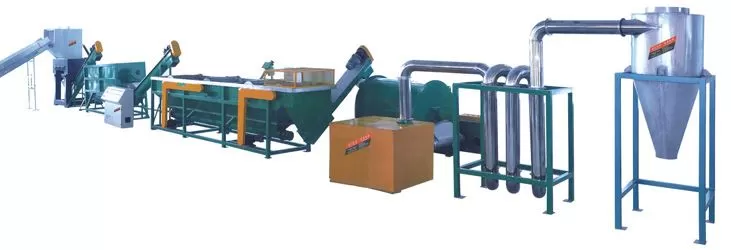Plastic waste is everywhere. It’s in our oceans, landfills, and even in places you wouldn’t expect—like inside the vehicles we drive every day. But instead of letting this waste take over our planet, what if we could turn it into something useful? What if the very plastic we discard could help create the next generation of automobiles?

The good news is that it can. Recycled plastic is increasingly being used in automobile manufacturing, transforming waste into valuable car components. This shift isn’t just an environmental win; it’s a game-changer for the automotive industry.
Sounds too good to be true? Let’s dive into how this works and why it’s making waves in the world of manufacturing.
Why Is Recycled Plastic Important in the Auto Industry?
In the past, car manufacturers relied heavily on virgin plastics and metals to build vehicles. But the tides are changing. The push towards sustainability and the rising costs of raw materials have led companies to seek alternatives. Enter recycled plastic—a material that’s not only cost-effective but also eco-friendly.
Using recycled plastic helps reduce the carbon footprint of manufacturing, as producing recycled materials requires less energy than creating new ones from scratch. For those interested in the technical details, this study shows that the energy savings can be up to 60%.
How Is Recycled Plastic Integrated Into Cars?
You might be wondering, “How exactly does recycled plastic fit into a car?” The answer might surprise you. Recycled plastic is used in a wide range of car parts, from the interiors to the exteriors.
- Interiors: Seats, dashboards, and door panels often use recycled plastic. It’s durable, lightweight, and can be molded into various shapes.
- Exteriors: Bumpers, wheel arches, and even underbody shields are being crafted from recycled materials. These components are tough, resistant to impact, and add to the vehicle’s overall sustainability.
For a deeper dive into specific parts, this article offers a comprehensive list.
What Are the Benefits of Using Recycled Plastic in Cars?
The advantages of using recycled plastic go beyond just being green. Here’s why the auto industry is embracing it:
- Cost Efficiency: Recycled plastic often costs less than virgin materials, which helps keep manufacturing expenses down.
- Weight Reduction: Lighter cars are more fuel-efficient, and recycled plastics help achieve that without compromising strength.
- Sustainability: Using recycled materials reduces dependency on new resources, which aligns with global sustainability goals.
A report by Sustainable Automotive Manufacturing highlights that manufacturers who incorporate recycled plastics can reduce vehicle weight by up to 10%, leading to better fuel economy.
Are There Challenges in Using Recycled Plastic?
Of course, no innovation comes without its challenges. While recycled plastic offers many benefits, it also presents some hurdles:
- Quality Consistency: Ensuring the quality of recycled plastic can be tricky. Variations in the source materials can lead to inconsistencies in the final product.
- Processing Issues: Recycled plastics can behave differently than virgin materials during manufacturing, sometimes requiring adjustments in production techniques.
- Consumer Perception: There’s still a stigma around “recycled” being synonymous with “lower quality,” which can affect consumer acceptance.
However, ongoing research and development are addressing these challenges. This paper discusses the latest advancements in processing recycled plastics for automotive use.
How Does Recycled Plastic Affect Vehicle Performance?
One might assume that using recycled plastic could compromise a car’s performance. But the opposite is often true. Recycled plastics are engineered to meet strict automotive standards, ensuring they perform just as well—if not better—than their virgin counterparts.
- Durability: Recycled plastics used in cars are tested rigorously for strength and impact resistance.
- Temperature Resistance: These materials can withstand extreme temperatures, making them suitable for both interiors and exteriors.
- Longevity: Recycled plastic components are designed to last, contributing to the overall lifespan of the vehicle.
For more on the performance of recycled materials, check out this case study.
What Does the Future Hold for Recycled Plastics in Automobiles?
The future looks bright for recycled plastics in the auto industry. As technology advances, we’re likely to see even more innovative uses for these materials.
- Advanced Recycling Techniques: New methods are being developed to improve the quality and versatility of recycled plastics.
- Increased Adoption: More automakers are committing to using recycled materials, driving demand and innovation.
- Circular Economy: The goal is to create a closed-loop system where materials are continuously recycled, reducing waste and conserving resources.
For insights into future trends, this article offers a forward-looking perspective.
Conclusion
Recycled plastic is more than just a sustainable choice; it’s a smart business decision. As we continue to innovate, the role of recycled materials in automobile manufacturing will only grow. By embracing these materials, we’re not just driving cars—we’re driving change.
Ready to join the revolution?
